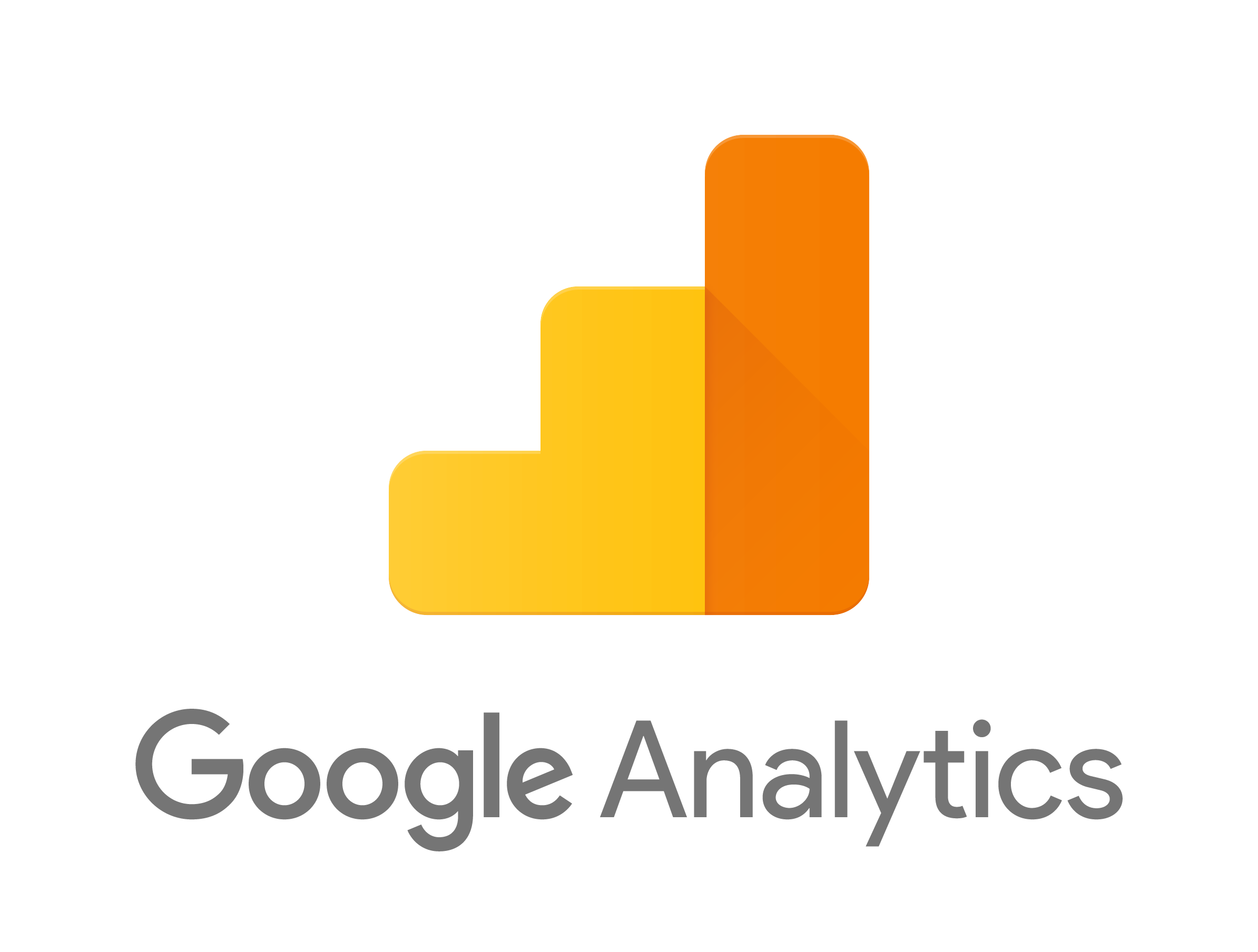One of the best metric measuring tools currently available is Google Analytics. Simply put, Google Analytics can be defined as a platform that collects data from websites and apps to produce reports that offer invaluable insights into a site’s performance. For example, the SEO metrics Google Analytics offers include the number of people that visit your website, audience demographic, the efficacy of a marketing campaign, page loading speed, and much more.
Every sector, be it profit or non-profit, be it education, tourism, eCommerce, or health, requires ‘metrics’ to gauge its performance. Thus, Google Analytics helps ventures of all kinds to get a deeper peep into their customers and thereby choose the best approach to serving the clients. The best part about the tool is its detail-oriented features that enable you to track and examine almost every piece of content you post online. So, are you aiming to dip your feet into Google Analytics shortly? If yes, this article will help you sieve out five game-changing metrics for SEO.
Why Use Google Analytics for monitoring performance?
Google Analytics is your go-to source for SEO metrics. It offers a wide range of data about your website, including organic search traffic and related keywords. With this data, you can get a better understanding of how your SEO efforts are performing. You can track the number of visitors coming to your site, their geographic location, and the pages they view. This data can help you identify areas where you might need to improve your SEO strategy. And since Google Analytics is free to use, you don’t have to worry about spending money on expensive tracking tools. It’s an invaluable resource for anyone looking to optimize their site for search engines. With Google Analytics, you can stay up to date on the latest trends and optimize your site to improve your ranking. So if you’re serious about SEO, make sure you start using Google Analytics today.
At first glance, Google Analytics can seem chaotic. You may feel that you are better off determining your site’s SEO performance intuitively. But that is far from the truth. Using Google Analytics is a transformative experience for many reasons –
- It is free to use online without any subscriptions or purchase plans. Thus, you are handed over an assortment of tracking statistics, analytics, and figures without spending an extra penny.
- Google Analytics is easy to access. To join the platform, all you need is a Gmail account.
- You can monitor critical metrics for SEO, such as age, gender, interests, location, and your audience’s devices.
- The real-time monitoring feature of Google Analytics helps you evaluate location statistics, traffic sources, the number of users on your site, data on conversion targets, and much more.
- Another vehement reason why using Google Analytics is worth it is that it helps you understand which social media platforms to target, such as Facebook, Twitter, LinkedIn, etc.
- Lastly, you can use Google Analytics to define competition and meticulously examine how your competitors’ websites fare as opposed to yours.
Now that we know why using Google Analytics is indispensable in 2022 let us look at five key SEO metrics that will change how your website fares within the labyrinth of the World Wide Web.
Top Five Game-changing SEO Metrics from Google Analytics
As per its technical definition in the digital marketing domain, a ‘metric’ is a set of data that helps people analyse website and marketing performance.
- Organic Traffic – Organic traffic shows how many visitors landed on your website from search results on Google, Bing, Yahoo, etc. Indicating the website’s overall capacity to attract legitimate visitors, it is arguably the most crucial SEO metric in Google Analytics. You can use the ‘Organic Traffic’ metric to monitor the flow of visitors on your site or web pages and gauge additional information, such as geography, age, the device used, and likewise of your audience. Moreover, it also helps detect an abrupt and sudden drop in traffic and understand the reasons behind the plunge. It is essential to remember that Organic Traffic alone is insufficient to assess your website’s performance. Combining it with other metrics would be best for an all-encompassing and productive analysis.
- Bounce Rate – If you’re a business owner, you need to understand the bounce rate metric from Google Analytics. You can use GA to measure how often users leave your website after only viewing one page. This is incredibly valuable information to have, as it can help you pinpoint where improvements need to be made. For example, if you have a high bounce rate for a particular page, you can look into why people are leaving so quickly and make changes to keep them engaged. You could also use the bounce rate metric to identify the most popular pages on your website. This can help you create more content around those topics, or even create new pages that customers can engage with. The possibilities are endless! So if you’re not already using Google Analytics to track your website’s bounce rate, now’s the time to start. It’s an invaluable tool for any business and can help you identify opportunities for growth.
- Click-through Rate (CTR) – This metric measures how many times an advertisement was viewed in comparison to how many times it was clicked. CTR (click-through rate) is a metric used in search engine optimization to determine what share of people seeing your website clicked on it. For instance, if 100 people see your listing in the search results and one person clicks on it, then the CTR will be 1 per cent. You can track CTR directly in Google Analytics. There is a strong connection between SERP ranking and CTR. The better you rank on search results; the better will be your click-through rate. Some quick tips to improve the CTR on specific pages of your site are –
- Utilise the meta title and description to evoke emotional responses
- Use short, descriptive, and keyword-rich URLs
- Craft a thoughtful and relevant title
- Use structured data to elevate the way your page displays in search results
- Page Per Session – Are you using Google Analytics (GA) to track the performance of your website? If so, you should definitely be paying attention to the Pages Per Session metric. This metric is one of the most important indicators of how engaging your website is to visitors. It tells you how many pages visitors view on your website for each session, which is a good indication of how user-friendly your site is. If visitors are viewing more pages, it means they are finding what they are looking for. On the other hand, if they view fewer pages, it could mean they’re struggling to find what they need. Paying attention to this metric can help you make changes to your website to improve your visitors’ experience. You can also use GA to compare the performance of different pages, see what content is popular, and so much more. The Pages Per Session metric is just the tip of the iceberg when it comes to analyzing your website with GA. So if you haven’t already, start taking advantage of the immense power of Google Analytics today.
- Conversion Rate – The last metric on our list is Conversion Rate. It depicts the number of website visitors who have converted into palpable customers. You can calculate the conversion rate by dividing the total number of visitors by the total number of conversions. The Conversation Rate metric in Google Analytics enables you to evaluate the quality of traffic, conversion efficiency, and your website’s overall profitability. You can use the information to devise an excellent SEO strategy.
So, there we have it, the top five key metrics for SEO that we can get from Google Analytics. In today’s day and age, a robust SEO campaign is indispensable for the success of any business. So, why not collaborate with one of London’s best SEO consultants? Algo Digital is a new-age SEO strategizing and consulting company that offers flexible contracts has transparent policies and has no hidden charges so that the online presence of your business is not compromised.



